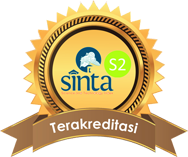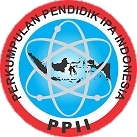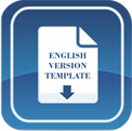PENGARUH MEDIA MOBILE LEARNING DAN KEMAMPUAN METAKOGNITIF TERHADAP KETERAMPILAN PROSES SAINS SISWA
DOI:
https://doi.org/10.15575/jtk.v4i2.5132Keywords:
kemampuan metakognitif, keterampilan proses sains, media mobile learningAbstract
Penelitian ini bertujuan untuk mengetahui pengaruh media mobile learning dan kemampuan metakognitif terhadap keterampilan proses sains siswa pada materi asam basa. Penelitian ini dilaksanakan di SMA Negeri 48 Jakarta dengan sampel penelitian sebanyak 40 siswa yang terdiri dari 20 siswa yang memiliki kemampuan metakognitif tinggi dan 20 siswa yang memiliki kemampuan metakognitif rendah yang dipilih dengan teknik multi stage random sampling. Metode penelitian yang digunakan adalah quasi eksperimen dengan desain treatment by level 2x2 dan data yang diperoleh dianalisis dengan anova dua jalur. Hasil pengujian diperoleh fhitung > ftabel (58,93 > 4,10) menunjukkan bahwa terdapat interaksi antara penggunaan media mobile learning dan kemampuan metakognitif; fhitung > ftabel (10,94 > 4,10) menunjukkan terdapat perbedaan keterampilan proses sains pada kelompok siswa yang menggunakan mobile learning dan pembelajaran tradisional; qhitung > qtabel (10,98 > 4,33) menunjukkan terdapat perbedaan keterampilan proses sains siswa yang menggunakan media mobile learning dengan siswa yang menggunakan pembelajaran tradisional pada kelompok siswa yang memiliki kemampuan metakognitif tinggi dan qhitung > qtabel (4,37 > 4,33) menunjukkan terdapat perbedaan keterampilan proses sains siswa yang menggunakan media mobile learning dan siswa yang menggunakan pembelajaran tradisional pada kelompok siswa yang memiliki kemampuan metakognitif rendah.
References
Boyinbode, O. K., & Akinyede, R. O. (2008). Mobile Learning : An Application Of Mobile And Wireless Technologies In Nigerian Learning System. What is M-learning ? 8(11), 386–392.
Branch, M., & Branch, M. (2016). The Effect of Metacognition on Educational Performance and Self-Directed Learning in Sixth Grade Female Students of Shiraz Zone Two. 7(2), 49–53.
Cook, D. A. (2007). Web-based learning : pro, cons and controversies. 37–42.
Faizal, M., & Rahman, A. (2013). International Journal of Instruction. 6(2).
Farida, I., & Sopandi, W. (2011). Pembelajaran berbasis web, interkoneksi multiple level representasi, Kesetimbangan larutan asam-basa. 14–24.
Hadjerrouit, S. (2010). Developing Web-Based Learning Resources in School Education : A User-Centered Approach. 6.
Hung, C., Huang, I., & Hwang, G. (2014). Effects of digital game-based learning on students’ self-efficacy, motivation, anxiety and achievements in learning mathematics.
Husain, C. (2014). Pemanfaatan Teknologi Informasi dan Komunikasi dalam Pembelajaran di SMA Muhammadiyah Tarakan. 2, 184–192.
Jabbour, K. K. (2013). An Analysis of The Effect of Mobile Learning on Lebanese Higher Education. 7(2), 280–301.
Jr, H. F. O. N., Brown, R. S., & Brown, R. S. (2015). Differential Effects of Question Formats in Math Assessment on Metacognition and Affect Differential Effects of Question Formats in Math Assessment on Metacognition and Affect.
Koc, M. (2005). Individual Learner Differences In Web-based Learning Environments : From Cognitive, Affective and Social-cultural Perspectives. 12–22.
Males, S., Bate, F., & Macnish, J. (2017). The impact of mobile learning on student performance as gauged by standardised test (NAPLAN) scores, Research context, 27(1), 99–114.
Rahayu, E. (2011). Dengan Pendekatan Keterampilan Proses untuk Meningkatkan Hasil Belajar dan Kemampuan Berpikir Kreatif Siswa.
Rahmawati. (2016). Hasil TIMSS 2015. 1–10.
Robson, R., & Corporation, E. (2003). Mobile Learning and Handheld Devices in the Classroom.
Schraw, Gregory, Dennisom, R. S. (1994). Assessing Metacognitive Awareness, Contemporary Educational Psychology, 19(4), 460-475.
Valencia-vallejo, N., López-vargas, O., Sanabria-rodrÃguez, L., Nacional, U. P., Management, K., International, E. A., … López-vargas, O. (2019). Effect of a metacognitive scaffolding on self-efficacy, metacognition, and achievement in e-learning environments Recommended citation : metacognition, and achievement in e-learning environments. Luis Sanabria-RodrÃ. 11(1), 1–19.
Downloads
Published
Issue
Section
License
Authors who publish with this journal agree to the following terms:
- Authors retain copyright and grant the journal right of first publication with the work simultaneously licensed under a  Creative Commons Attribution-ShareAlike that allows others to share the work with an acknowledgement of the work's authorship and initial publication in this journal.
- Authors are able to enter into separate, additional contractual arrangements for the non-exclusive distribution of the journal's published version of the work (e.g., post it to an institutional repository or publish it in a book), with an acknowledgement of its initial publication in this journal.
- Authors are permitted and encouraged to post their work online (e.g., in institutional repositories or on their website) prior to and during the submission process, as it can lead to productive exchanges, as well as earlier and greater citation of published work (See The Effect of Open Access).








